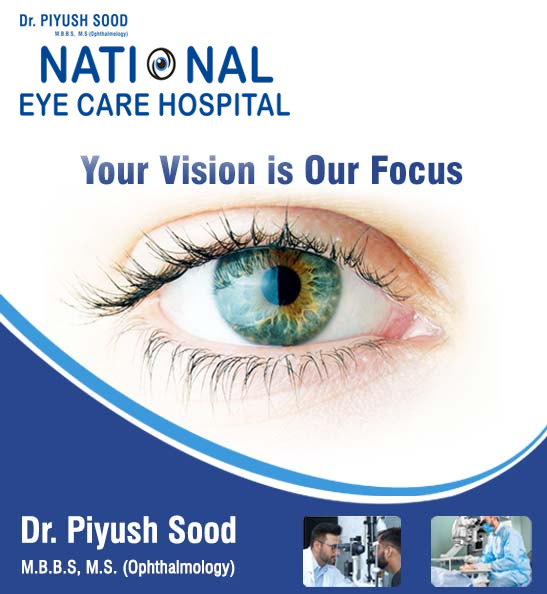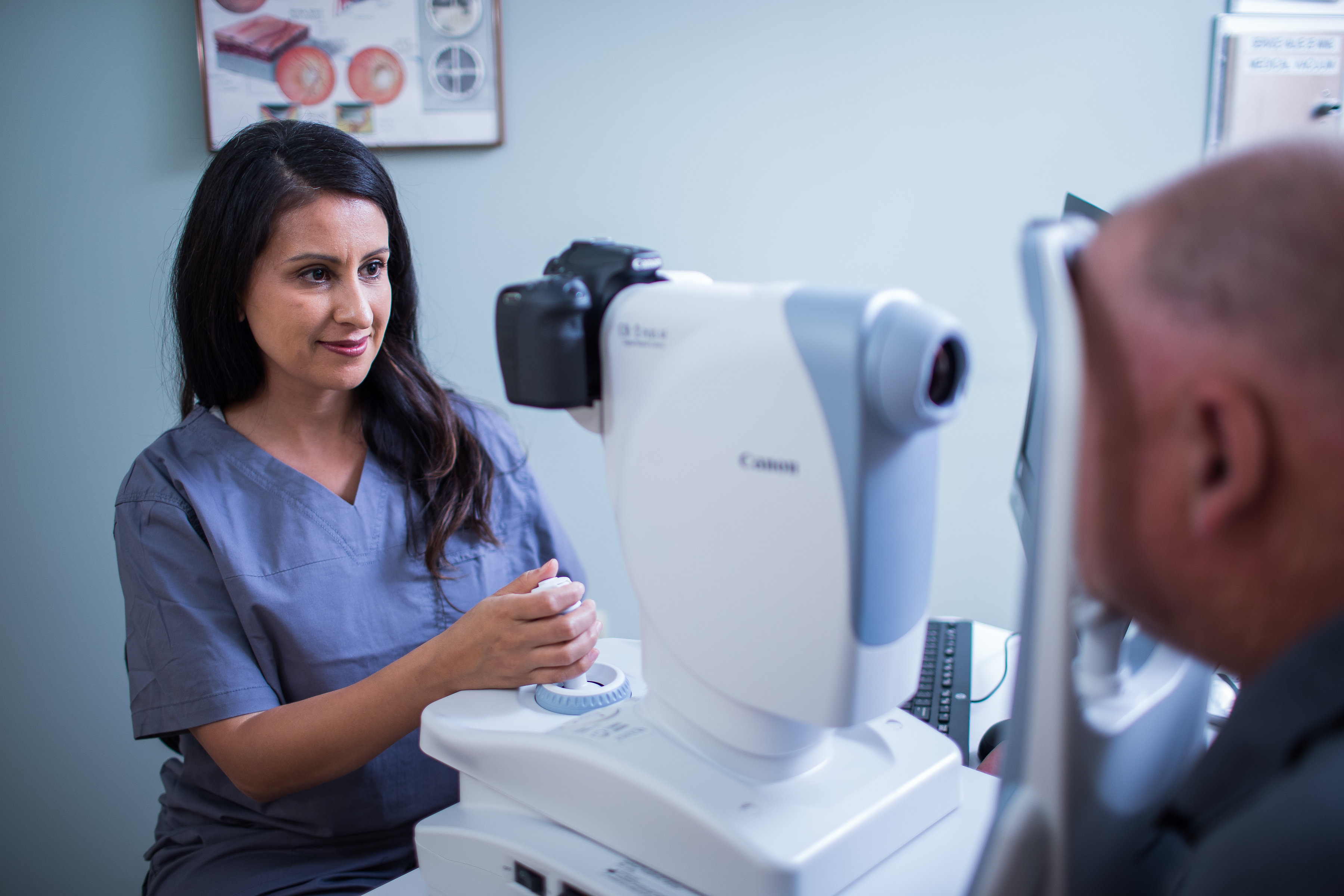Is Refractive Surgical Treatment Right for You? Variables to Consider for Better Eyecare
In the realm of eye care, the choice to go through refractive surgical treatment is a significant one that demands thoughtful consideration. From the ins and outs of one's ocular wellness to the intricacies of individual assumptions and everyday habits, each aspect holds value in the broader landscape of refractive surgery candidateship.
Eye Wellness Analysis
When considering refractive surgical procedure, a thorough eye health and wellness analysis is essential to analyze the suitability of the treatment for each and every person. neurologist andalusia. This assessment entails a series of tests and evaluations carried out by an eye care professional to figure out the total wellness of the eyes, the visibility of any type of underlying problems, and the security of the refractive error
During the assessment, numerous aspects are taken right into account, such as the patient's case history, current eye prescription, corneal thickness, student size, and tear film high quality. These evaluations aid to recognize any kind of contraindications to refractive surgical treatment, such as corneal irregularities, cataracts, or unattended eye infections. Additionally, the analysis helps to handle individual expectations pertaining to the potential outcomes of the surgical procedure based upon their one-of-a-kind eye attributes.
Inevitably, the eye health and wellness analysis is important in guaranteeing the safety and effectiveness of refractive surgery, as it provides important insights right into the individual's eye health condition and aids identify the most suitable treatment alternatives for accomplishing optimal aesthetic results. (eye doctors in andalusia)
Lifestyle Analysis
A complete lifestyle assessment is indispensable in identifying the suitability of refractive surgical procedure for an individual's aesthetic correction demands. Way of life elements such as profession, pastimes, and daily activities play an essential duty in the decision-making procedure regarding refractive surgery. For circumstances, people with professions that include a high degree of exercise or direct exposure to environmental aspects may have different aesthetic needs compared to those with inactive desk work. Recognizing how a person's lifestyle may impact their vision post-surgery is vital for taking care of expectations and ensuring optimum outcomes.
Additionally, way of living behaviors such as sports engagement, outside activities, or also skin care routines can influence the recovery procedure and general success of refractive surgery. By conducting a thorough lifestyle analysis, eye treatment experts can customize their referrals and treatment plans to meet the unique demands of each person, ultimately leading to improved visual results and contentment.
Assumption Alignment

Setting sensible expectations involves extensive pre-operative discussions between the ophthalmologist and the client. The doctor should transparently interact the prospective threats, advantages, and limitations of the treatment (andalusia pediatrics). Individuals need to comprehend that while several individuals accomplish 20/20 vision or better following dig this refractive surgical treatment, some may still require glasses for specific tasks like reading or driving at night. Taking care of these assumptions helps stop dissatisfaction and discontentment post-surgery, bring about an extra positive general experience for the individual.
Danger Evaluation

Variables that may raise the risk of problems include age, particular clinical conditions like autoimmune diseases, unsteady vision prescription, slim corneas, and unrealistic patient expectations. In addition, picking a skilled and skilled surgeon, following pre and post-operative treatment instructions diligently, and disclosing any kind of appropriate clinical history can assist mitigate risks.
To lessen the chance of complications, eye doctors carry out comprehensive pre-operative evaluations to identify any type of contraindications to surgical treatment. They also review the possible threats and benefits with patients throughout the assessment process. By participating in open interaction and shared decision-making, both the eye doctor and the person can work together to establish if refractive surgical procedure is the best option based on individual threat this website accounts and desired end results.
Assessment Relevance
Taking into consideration the crucial role of educated decision-making in assessing risks and potential problems in refractive surgical procedure, the examination procedure holds significant significance in leading patients towards ideal outcomes. Throughout the examination, the eye doctor reviews the patient's eye health and wellness, refractive errors, and general suitability for surgical treatment. This initial analysis is essential in establishing the most suitable treatment for every individual, taking into consideration elements such as corneal thickness, student dimension, and existing eye conditions.
In addition, the assessment acts as an opportunity for clients to review their expectations, problems, and any type of concerns they over at this website might have relating to the surgical procedure. Clear interaction between the person and the cosmetic surgeon is important to make certain reasonable assumptions and an extensive understanding of the possible dangers and benefits included.
In addition, the appointment allows the specialist to discuss the various surgical options offered, their corresponding end results, and the post-operative treatment required. This comprehensive conversation empowers patients to make knowledgeable choices regarding their eye treatment, causing better complete satisfaction and outcomes post-surgery.
Verdict
To conclude, people thinking about refractive surgical treatment should undertake a thorough eye wellness evaluation, examine their way of living routines, align their assumptions with prospective results, evaluate the involved dangers, and prioritize assessments with eye care specialists. These aspects play a critical function in establishing the suitability of refractive surgical treatment for every person, making certain optimum end results and satisfaction with the procedure.
People thinking about refractive surgical procedure often have high expectations relating to the results, anticipating excellent vision without the requirement for glasses or call lenses. While refractive surgery can significantly improve vision and decrease reliance on visual help, it is essential for individuals to comprehend that outcomes may vary based on private variables such as the level of refractive error, corneal density, and total eye health and wellness.
By involving in open interaction and shared decision-making, both the eye doctor and the patient can work with each other to determine if refractive surgery is the ideal option based on individual threat accounts and wanted results.
Taking into consideration the essential duty of notified decision-making in assessing risks and potential difficulties in refractive surgical procedure, the appointment process holds substantial relevance in leading clients towards optimal outcomes. Throughout the consultation, the eye doctor evaluates the client's eye health, refractive errors, and overall viability for surgical treatment.